Being active is important for the health of you and your whānau.
Keeping active can protect against cancers of the bowel, breast and endometrium (lining of the womb). Being active also helps reduces the risk of weight-related cancers.
We know it's not always easy to be active and that's why we support making it easy and enjoyable to be active and use active transport in our neighbourhoods.
Things to keep in mind
- Moving your body is one of the most important things you can do to reduce your risk of cancer.
- Move more and sit less! Have fun and be active every day. Do at least 2.5 hours of moderate intensity activity a week.
- Keeping active includes daily activities like housework and taking the stairs at work, as well as sporting activities like cycling and rugby.
- It’s never too late to increase your activity levels
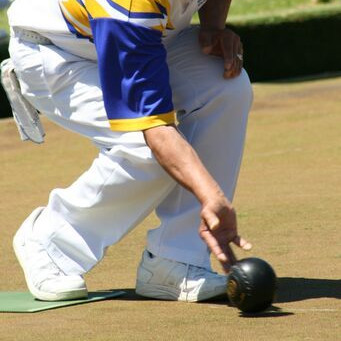
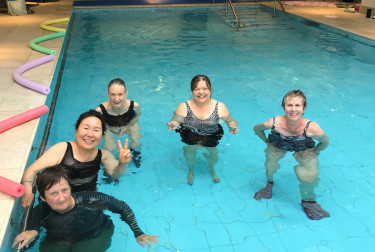
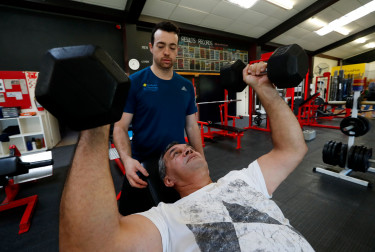
What physical activity is
Physical activity is anything that moves your body and burns calories. It can include:
- chores around the home including cleaning and gardening
- active transportation such as walking and cycling
- work activities such as lifting and climbing stairs
- playing games, gym and sports, at home, school and in the community
What do we mean by intensity?
Intensity is how hard you work to do the activity. The activities you do may be of:
Light-intensity such as casual walking and gardening.
Moderate intensity activities include brisk walking and kapa haka. Your heart will beat faster and you will breathe harder than normal. You will still be able to talk.
Vigorous intensity activities include running and lap swimming and require more effort. You will probably sweat and your heart will beat a lot faster. You won’t be able to talk much without getting out of breath.
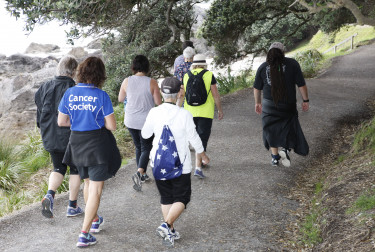
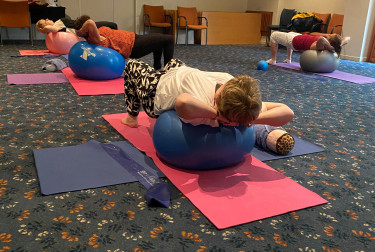
Activity guidelines to reduce cancer risk
For adults
- Aim for at least 2.5 hours of moderate-intensity activity spread over the week. Or do one hour and 15 minutes a week of vigorous activity, or a mix of both over the week.
- Gain even more benefit by increasing moderate activity amounts to at least five hours per week.
- Add moderate to high-intensity muscle-strengthening activity such as climbing stairs and hills, weights, or yoga, on at least two days per week.
- Spend less time sitting. If your work involves sitting for prolonged periods of time, stand up to speak on the phone, hold a walking meeting, take the stairs or park further away from work.
Children and young people
- Pre-school children should keep active and have lots of chances to move over the day.
- Try new things such as dancing with music.
- Children and young people (6-17 years) should get at least one hour a day of moderate to vigorous exercise such as skateboarding and kicking a ball.
- Include vigorous-intensity activity on at least three days per week such as skipping, biking, and dancing.
- Take part in muscle and bone strengthening (weightbearing) activities on at least three days per week. Such as running, jumping rope and bouncing on a trampoline.
- No more than two hours per day of recreational screen time (computer, TV, mobile phone).
These recommendations are based on the NZ Physical Activity Guidelines. For more information, visit the Ministry of Health Manatū Hauora website
Handy Hints
- Make it fun!
- Play active games with your tamariki.
- Explore local walkways and cycle trails.
- Take your dog for a walk or borrow one!
- Try a new hobby – dancing, gardening, tramping or a new social sport.
- Get active with friends – join a class together, throw a Frisbee, or instead of sitting down to have a coffee, grab a keep cup and take a walk together.
How can we encourage an active Aotearoa?
To make changes in your neighbourhood ask for and support: •
- Good quality and safe active transport opportunities.
- Limit the volume and speed of traffic in public spaces.
- Enjoyable, safe and connected built environments. Include accessible public spaces such as visible stairs, good cycle ways and walking paths.
- Provide accessible, safe parks and sports and leisure facilities.
- Increase the number of health promoting schools and workplaces.
- Public awareness campaigns promoting physical activity
What we do to promote keeping active
The Cancer Society wants healthy active living to be made easier through:
- health promoting schools and workplaces
- good quality and safe active transport opportunities such as biking, walking and public transport
- enjoyable, safe and connected built environments such as limited traffic volume and speed in public spaces
- accessible, safe parks, sports and leisure facilities
- raising public awareness through physical activity campaigns
- a national action plan.
